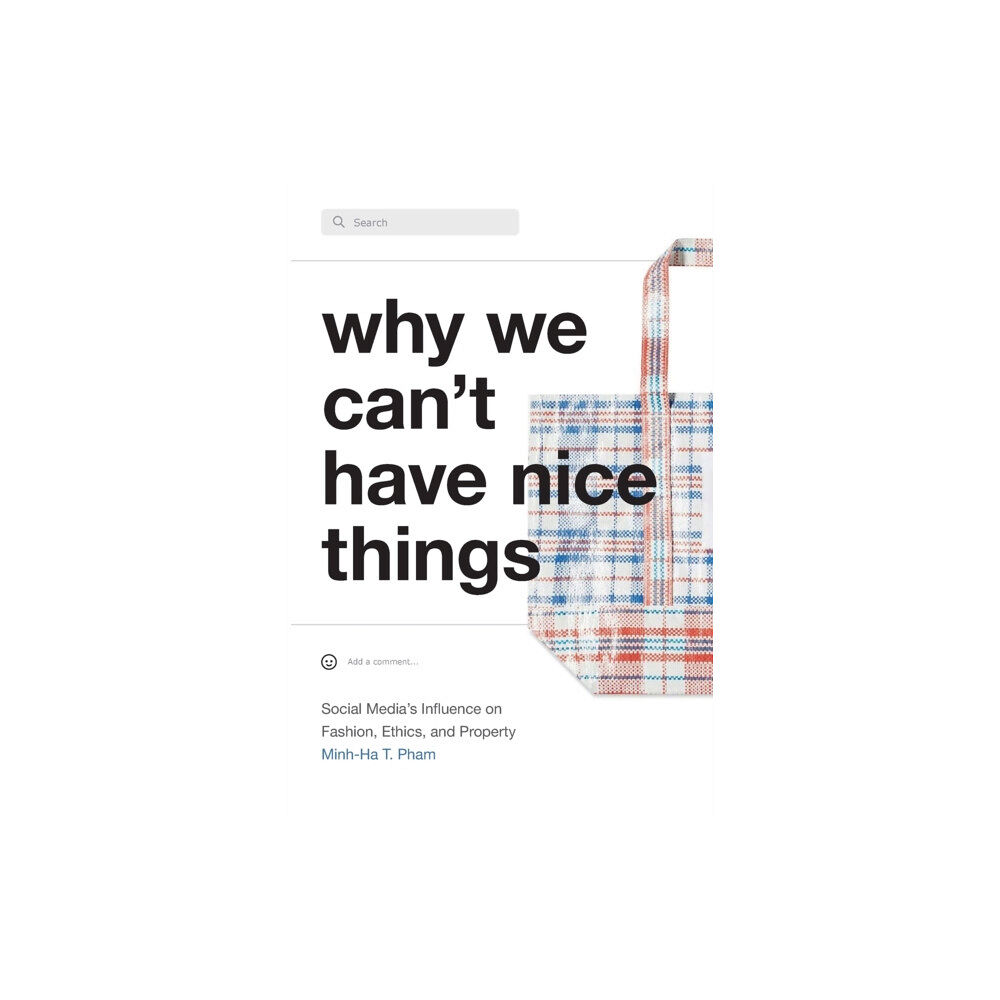- Hem
- Böcker
- Kurslitteratur
- Samhälle & Politik
- Why We Can't Have Nice Things (häftad, eng)

Why We Can't Have Nice Things (häftad, eng)
In 2016, social media users in Thailand called out the Paris-based luxury fashion house Balenciaga for copying the popular Thai “rainb...
315 kr
349 kr
Bara 2 kvar
Skickas inom 4 - 5 vardagar
Fri frakt över 399:-
Snabb leverans
Alltid låga priser
Produktbeskrivning
In 2016, social media users in Thailand called out the Paris-based luxury fashion house Balenciaga for copying the popular Thai “rainbow bag,” using Balenciaga’s hashtags to circulate memes revealing the source of the bags’ design. In Why We Can’t Have Nice Things Minh-Ha T.
Pham examines the way social media users monitor the fashion market for the appearance of knockoff fashion, design theft, and plagiarism. Tracing the history of fashion antipiracy efforts back to the 1930s, she foregrounds the work of policing that has been tacitly outsourced to social media.
Despite the social media concern for ethical fashion and consumption and the good intentions behind design policing, Pham shows that it has ironically deepened forms of social and market inequality, as it relies on and reinforces racist and colonial norms and ideas about what constitutes copying and what counts as creativity.
These struggles over ethical fashion and intellectual property, Pham demonstrates, constitute deeper struggles over the colonial legacies of cultural property in digital and global economies.
Pham examines the way social media users monitor the fashion market for the appearance of knockoff fashion, design theft, and plagiarism. Tracing the history of fashion antipiracy efforts back to the 1930s, she foregrounds the work of policing that has been tacitly outsourced to social media.
Despite the social media concern for ethical fashion and consumption and the good intentions behind design policing, Pham shows that it has ironically deepened forms of social and market inequality, as it relies on and reinforces racist and colonial norms and ideas about what constitutes copying and what counts as creativity.
These struggles over ethical fashion and intellectual property, Pham demonstrates, constitute deeper struggles over the colonial legacies of cultural property in digital and global economies.
| Format | Häftad |
| Omfång | 176 sidor |
| Språk | Engelska |
| Förlag | Duke University Press |
| Utgivningsdatum | 2022-09-13 |
| ISBN | 9781478018612 |
Specifikation
Böcker
- Format Häftad
- Antal sidor 176
- Språk Engelska
- Utgivningsdatum 2022-09-13
- ISBN 9781478018612
- Förlag Duke University Press
Leverans
Vi erbjuder flera smidiga leveransalternativ beroende på ditt postnummer, såsom Budbee Box, Early Bird, Instabox och DB Schenker. Vid köp över 399 kr är leveransen kostnadsfri, annars tillkommer en fraktavgift från 39 kr. Välj det alternativ som passar dig bäst för en bekväm leverans.
Betalning
Du kan betala tryggt och enkelt via Avarda med flera alternativ: Swish för snabb betalning, kortbetalning med VISA eller MasterCard, faktura med 30 dagars betalningstid, eller konto för flexibel delbetalning.
Specifikation
Böcker
- Format Häftad
- Antal sidor 176
- Språk Engelska
- Utgivningsdatum 2022-09-13
- ISBN 9781478018612
- Förlag Duke University Press
